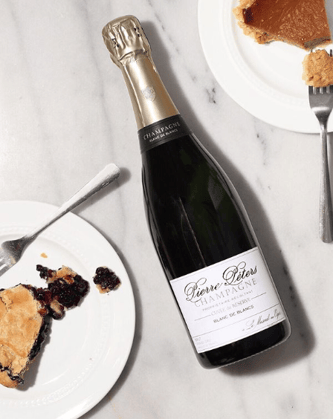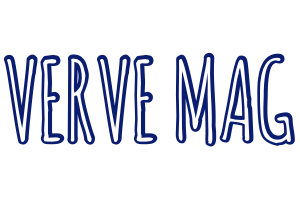Everything You Need to Know About Grower Champagne

Here at Verve Wine, we believe that there’s never a bad time to drink Champagne. However, when we decide to pop a bottle of bubbles, we make sure that we’re sipping the best-- which means that we tend to stick to Grower Champagne. Not sure what we’re talking about? Check out our guide to Everything You Need to Know About Grower Champagne to ensure you’re only popping the cream of the crop. As many wise folks have said before us, life is simply too short to drink bad wine-- Champagne included!
What Is Grower Champagne?
Grower Champagne is a type of sparkling wine (Champagne) that is grown, vinified, and aged by a specific grape grower and his/her family. This means that the winemaker cultivates the vineyards, harvests the fruit, and produces the wines with his/her own hands. Think of these wines as the equivalent of farmer’s market produce or single-origin coffee. Believe it or not, only about 5% of Champagne imported into the United States is considered Grower Champagne!
BROWSE CHAMPAGNE
So, What Is the Opposite of Grower Champagne?
Basically, there are three types of Champagne produced within the region: House (Maison), Cooperative (Co-op), and Single Estate (Grower Champagne). Houses make up over 85% of the Champagne brought into the United States. These are your big names-- think, Moet & Chandon, Veuve Clicquot, Perrier-Jouet, and more. These brands make millions of bottles of year, hence their wide distribution and consumer recognition. In order to sustain such a wide production, these houses buy their fruit from thousands (yes, thousands) of growers different growers across various appellations.
Co-ops are a little more artisanal, in that these wines tend to be made within specific villages in Champagne. This means that the fruit that goes into co-op bottlings comes from in and around the village in which they’re produced, usually sourced from tens to hundreds of growers. At a co-op, there is generally one ‘chief winemaker’ in charge of vinifying and blending the final wines.

What Are the Differences Between Grower Champagne and House/Cooperative Champagne?
When it comes down to it, the major difference amongst these two categories is simply the fruit that’s used-- which actually isn’t that simple at all. Grower Champagne producers literally have their eyes (and hands) on their own vines year-round, meaning that they are the ones that are regulating how the land is being cultivated. In a House/Cooperative situation, these brands aren’t (usually) doing the farming and are simply relying on external farmers to provide fruit for their use. The way we see it is unless you’re farming the land yourself or have minimal and very tight relationships with growers that you trust, it’s hard to regulate the quality of the farming practices/fruit going into the wines. This only gets harder the more contracts you bring into the mix!
Another difference here is that House/Cooperative Champagne producers work with fruit from many different parcels and appellations, so are therefore able to alter their blends year after year to create a more consistent flavor profile amongst their wines. When it comes to Grower Champagne, these farmers are working with the same parcels every year, which are always susceptible to a specific vintage’s climate and weather conditions (like any other small wine producer). Does this lead to vintage variation? It can. Do we believe this is the true depiction of terroir? Absolutely.
Read more: Sparkling Wine From Around the World, Explained
How Can I Tell If a Bottle of Champagne Is Grower Champagne?
Every bottle of Champagne is marked with a specific set of letters. In total, there are seven official ways to identify Champagne:
NM - Négociant Manipulant : This is the most common labeling of them all, signifying that 94% or more of the fruit was purchased from external growers. Most House Champagnes will show ‘NM’ on the label.
CM - Coopérative Manipulant : This signifies that one single co-op produced this wine from numerous regional growers’ fruit.
RM - Récoltant Manipulant : Bingo! This little labeling signifies that 95% or more of the fruit within the bottle was estate-grown and not purchased. AKA, RM = Grower Champagne.
RC - Récoltant Coopérateur : This means that a vigneron (grower-producer) grew their fruit but used a co-op facility to vinify and brand their wine.
The three less common markings are: MA - Marque d’Acheteur, meaning a large retail shop or restaurant purchases a final wine and sells it under a private label; ND - Négociant Distributeur, meaning someone labels and distributes the wine but did not cultivate or vinify it; SR - Société de Récoltants, meaning a group of growers collectively works together and markets their own brand.
BROWSE CHAMPAGNE
What Does Grower Champagne Taste Like?
There’s no blanket answer as to what Grower Champagne tastes like (this would be like asking what rosé tastes like), as there are so many different styles, vinification choices, and aging regimens used. However, we believe that farming your own fruit responsibly and using as little intervention as possible in the cellar is ultimately what leads to terroir-reflective and downright delicious wines. Many grower-producers in Champagne farm with this mentality.

Is Grower Champagne Better Than House Produced Champagne?
Again, it’s hard to make a blanket statement that one overarching category tastes better than another. However, we believe that Grower Champagne best reflects our ethos of ‘good wine,’ therefore, we tend to find that small winemaking families that farm their own land and vinify responsibly usually make the best tasting wines.
How Many ‘Growers’ Are There in Champagne?
Believe it or not, there are nearly 20,000 grape growers in the region of Champagne! However, only about 25% of these farmers (5,000) produce and bottle wine-- and the number of those farming responsibly and producing wines at their own estates is even smaller!
Who Are Some Top ‘Grower-Producers’ That I Should Know?
Some of our favorite producers of Grower Champagne include:
